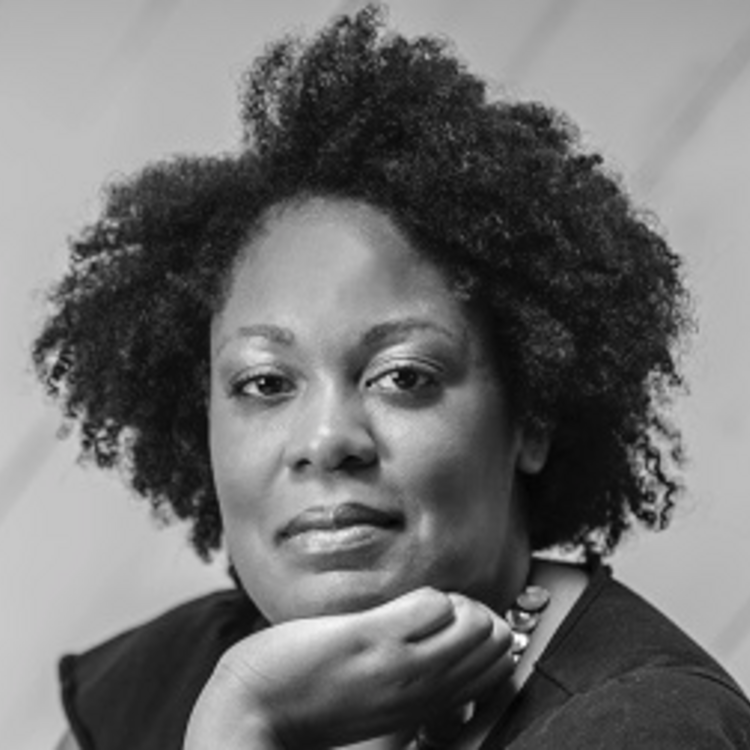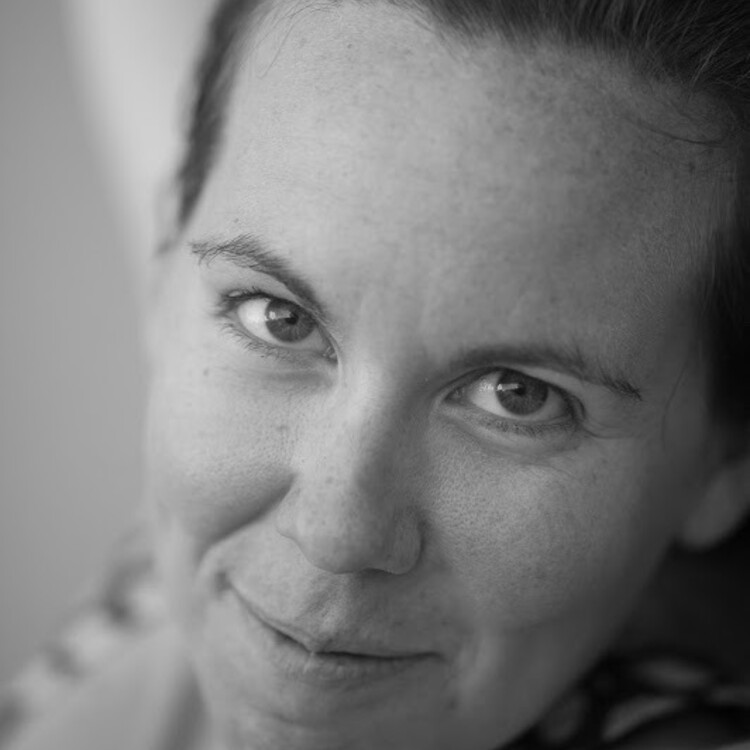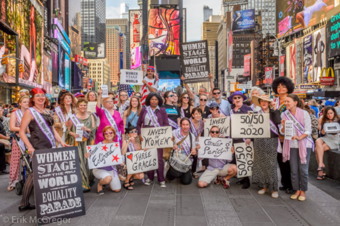Writing Towards the Specific
Spurred by the controversies over the new adaptation of The Jungle Book that opened this summer in Chicago, this series of articles explores who is allowed to tell whose stories onstage. This series is curated by Rebecca Stevens, the Chicago Commons Producer for HowlRound.
Quite simply, and with all the power, complexity, and responsibility that such a decision holds, all playwrights have a right to tell stories, create characters, and write about situations outside of their identities and lived experiences.
William Faulkner, in an interview with Paris Review, "The Art of Fiction No. 12" says this about a writer’s tools:
“A writer needs three things, experience, observation, and imagination—any two of which, at times any one of which—can supply the lack of the others. With me, a story usually begins with a single idea or memory or mental picture. The writing of the story is simply a matter of working up to that moment, to explain why it happened or what it caused to follow. A writer is trying to create believable people in credible moving situations in the most moving way he can.”
As playwrights, we are image makers. The work we do has significant and lasting impact on perception. This is why social awareness, cultural literacy, and racial consciousness are essential to our work. This is what makes the issue of writing outside of our ethnicity—always and exceedingly—about more than just a desire to share your truth, experience, curiosity, and admiration. Playwrights, all of us, need to understand that owing to limited representations in mass media, the way we write women and people of color impacts how women and people of color are perceived in everyday life.
This is why, in his 1994 essay, “The Ground on Which I Stand,” August Wilson called for African Americans to seize the power over our own cultural authority:
"So much of what makes this country rich in art and all manners of spiritual life is the contributions that we as African Americans have made. We cannot allow others to have authority over our cultural and spiritual products. We reject, without reservation, any attempts by anyone to rewrite our history so to deny us the rewards of our spiritual labors, and to become the culture custodians of our art, our literature and our lives."
It is also why these articles and so many more were written:
- Asian American theater leaders react to 'Nightingale' controversy
- Geisha A-Go-Go: Katy Perry’s AMAs Performance Stirs Debate
- Guthrie Theater's smug and offensive "Clybourne Park" perpetuates the illusion of a "post-Civil-Rights" society
- Ordway Center's Miss Saigon: The show must go on
As an African American woman playwright from a poor, working class, racist, country town in East Texas, I learned early in life that I am part of a community of people whose voices have been silenced, whose image has been exaggerated and misrepresented, and whose legacy has been erased and exploited. White playwrights, male and female, need to understand that they are writing within a legacy of the people responsible for having done those things to people of color. Neither legacy is fair. They come with unshakable, palpable, and visible burdens. It is challenging that despite your best efforts and intentions the work that you create can be judged and attacked not merely on its merit, but for the color of your skin.
For a woman playwright of color, who writes across race, culture, gender, and class, I find the issue of culture appropriation to be a matter of artistic and professional integrity. What I’ve written has my name on it. My plays offer up for consideration my sense of truth, my spirit of inquiry, my struggle for how to negotiate existence, and my impression of the world. I want my work to be great. Part of making my work great is having a deep, honest and thorough understanding of the limits of my experience, examining the bias upon which my observations are based, and addressing the many ways in which prejudice may influence my imagination.
I write people of color into my plays with depth, passion, wisdom, and flaws, but also with a yearning for love, hope for better days, and despair for all that will never be. I do so because when you see a person of color on the street, I want you to see us for who we are as individuals and not for the impressions left on you by stereotypical representations perpetuated by mass media, the music industry, theater, television, and film. Yes, I have my work cut out for me. I arm myself with knowledge. I do extensive research. Whether I’m writing from within or without of my culture, I investigate the world and everyday lives of the characters. I watch films, television shows, and documentaries. I read books, articles, and plays. I listen to music for hours on end and look at art. I study the geography and landscape. I learn about the politics, social customs, and food ways. I listen to people who know more than me and allow them to inform me. I work to bring together an artistic and production team that is smart, talented, and interested in having difficult, but necessary conversations about race and culture.
The world of theater is a space that holds multiple truths. But at some point, we’re going to get an aspect of a character or situation wrong. We must accept this now so that we suffer less for it later. Inevitably, we will err. And when we do, we have to sit humbly and gracefully in our wrongness. We can’t get defensive or lash out and scream. We have to let go of our ego, thank the muses, and take the lesson. You see, as playwrights our greatest responsibility is to the script. We are writing in service of the characters, the story and the world of the play. When we are writing beyond ourselves, it is imperative that we remain open and engage in dialogue. We have to do more listening than convincing. We must always write towards the specific.














Comments
The article is just the start of the conversation—we want to know what you think about this subject, too! HowlRound is a space for knowledge-sharing, and we welcome spirited, thoughtful, and on-topic dialogue. Find our full comments policy here
Thank you Ms. Lawton for this eloquent and passionate expression of your truth. I agree with much of what you're saying and wanted to add this particular fact. Many of us people of color and women alike but mostly people of color have been born into, socialized by and our legacies have been thoroughly influenced by white male dominant culture. So for me, I often feel that people of color write white characters with the authenticity that represents them because, this is the culture you've been raised in, lived every day and thus has had a significant impact on your own ethnic culture.
Conversely, I would anecdotally argue that dominant culture in America doesn't really have to make as much of an effort to understand or empathize with the the complexities, beauties and fullness of non white cultures. And you know I get it, I don't know all the ends and outs of many cultures outside of my own. However, when your culture has the power to effect image consumption and perception, I believe you have to go beyond the obvious stereotypical images from mass media. You have to dig deeper to excavate past the false cultural sediment we've all been fed to discover the treasure that is the beauty found in writing about non-white experiences. When your culture is exponentially more produced in theatre, television and film, yes, you have more work. When your culture has been the standard of beauty and success for centuries by which we all judge ourselves, yes you have more work to do. To whom much is given much is required.
So, for now, I lean toward Mr. Wilson's argument, and believe that people of color specifically, should be the "culture custodians of their art, literature and lives," because we're not quite there as a society. Many strides have been accomplished and barriers broken down but I honestly don't trust my story to dominant culture just yet, HIStory has proven this point all too well.
My two cents.
Yes yes. Beautifully expressed. A call to be curious, to explore, to be humble and to keep going and to make space for others.
Thank you, Jacqueline, for starting from the idea that we can all write about different races. To argue otherwise is to say that white folks can only write about white folks, which many white folks are all too happy to do.
That said, yes, as a white playwright I have to be willing to do my homework and willing to hear that I made a mistake, or mistakes. I've had to change my plays Rice Kugel (Asian American/white interracial relationships) and My Visit to America (indigenous American/European relationships) because I got big chunks of them wrong the first time. My Visit to America is still under revision, and I'm still not sure I have it right. I expect to have many more changes to work out.
And I go to see plays that are written by playwrights of color, not to appropriate their work or ideas, but to hear other expressions so that I'm not just hearing a white view of such relationships. (Oh, and I happen to like them as theatrical works about as often as I like the work of white playwrights, which is to say usually.)
I still can't honestly say that I do as much homework as it sounds like you do.
Matthew Lopez's The Whipping Man is one of the finest examples I've seen of writing outside of one's own ethnicity or of interracial relationships. This is someone who obviously did his homework.
I don't know where you land on Clybourne Park. My take on it - whether this was the playwright's intent or not - was that we white folks are off in our own world and don't listen. I fear that reality creeping into my writing and can only hope that I really do listen.